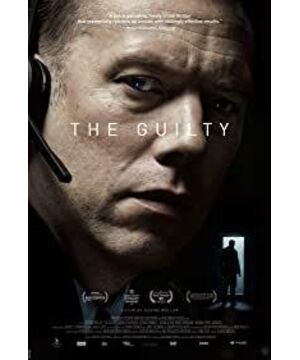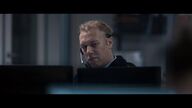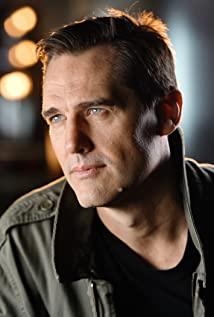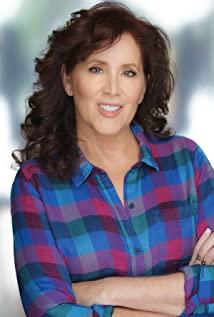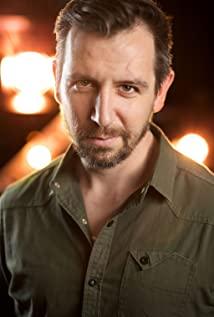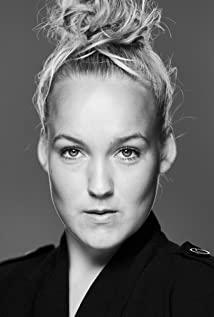Write my doubts first:
In the end, who will the male protagonist stand in front of the door and pick up the phone to call?
My first emotion after watching this movie was: "scared"
yeah, scared
The first fear is that life is inherently a huge information society. Countless information fills our life, but not all information is known to us, so we are all at risk of taking it out of context and most people's nature is "preconceived" Just like what the male protagonist in this movie conveyed at the beginning because of the world of children: "Dad is fierce to mother", "Dad pointed at his brother and yelled" "Dad was very fierce and told me not to enter my brother's room", so I preconceived that Women are the victims and ignore the single cognition of the child's world. At the same time, there is a blind spot: the mother will not harm the child's irritable father, and most mothers love their children (especially when the male protagonist finds out Mikel. After he has a criminal record, he even thinks that he kidnapped his mother)
how scary
Those who are murderous will definitely commit crimes "①", and those who quarreled with the deceased before he died are suspected of killing the deceased "The Twelve Citizens", those with previous convictions will commit crimes again "②", and the "Twelve Citizens" I have read. There is an example in "Wonderful Hands and Kind Hearts" where a mother brought her child to see a doctor and finally found out that it was not that the child had been neglected and drowned, but that the mother was mentally ill and acted violently against the child while the father was hiding it for the mother.
Life is always full of such direct deductions. I study law, so I am more sensitive and overwhelmed with these information points. In the world of law, the pursuit of "fairness and justice" cannot be discriminated by background, so I remind myself To be rational about the information points of the case file To clearly recognize that it is important to see what can be seen, but it is more important to see the unknown hidden and this is also very important in life
"Involving knowledge:
①Character evidence rule: A person has a certain character and cannot prove that he will perform a certain behavior in a specific situation. Therefore, there is no correlation between the character and the facts of the disputed case, and the character evidence should be excluded in principle.
②Similar behavior evidence rules: Similar behavior evidence refers to the fact that the defendant has committed similar illegal or criminal acts before, which has no correlation with the current case facts. It cannot be considered that the defendant has committed similar criminal acts because he has committed similar criminal acts before. this crime. "
"The evidence presented in the court can exclude these irrelevant evidence, but it cannot be restrained in human life (in fact, it may not be possible in the court, I really have less confidence in the Chinese court). Otherwise, , how "sinners""
keep in mind
Second, does each of us have the so-called "sense of justice" warm-blooded gene? And according to the first point, in this information risk society, it can't be more obvious. On the Internet, even if only a part of the information is exposed, there are always capable people who can use this information to unscrupulously use their imaginations and hold them accountable, as if they are messengers who see through everything, a sword of God, and they are responsible for punishing these inner man with snake.
In the film, the male protagonist is full of enthusiasm, thinking that the police are the embodiment of justice and guardians. Before receiving a call from his mother, he already had a trick. He's been waiting, always waiting for someone who needs to be rescued to call him. So when it's just a phone call from a drug addict, a mugger, a biker with a broken leg, he's disappointed. Very obvious disappointment. Until finally, his mother called, and his sense of justice exploded: "She needs my rescue and help", "She is the one who is really urgent and needs real help to be held by the throat of malice instead of committing suicide" So he doesn't He stopped calling to urge the police to find the vehicle and sent someone to Mariade's house. He wished that he would teleport to the scene and save them from the fire. He was irritable, he didn't have a good relationship with his colleagues, and even apologized just to know the technical problems: changing to a separate space would not affect his answering the phone, he called his colleagues to ask him to go directly to the designated place, and "get off" directly. "I'll tell you when you get off the bus", he felt that he was the leader, and they should be the soldiers and swords of the messenger of justice. For the realization of justice, all measures are not excessive. Selfish? Selfish. Don't we do that too often? Think of others as tools to achieve your goals. indifferent. Impersonal. Ignore the most basic emotional problems of people. The male protagonist knew that his friend had drank two bottles of beer and said: "It doesn't affect driving, hurry up", maybe when he drank four bottles, he said: "Then you drive slowly but hurry over". I was apprehensive in front of the screen just because I heard the sound of rain, a drunk man driving a long distance in the rain, thinking it was dangerous. Besides, it's a friend.
So when the male protagonist knew that his mother was the murderer, he broke down. He tugs on the phone cord and hits the ground hard.
He has always thought that the ugly person is an affectionate person. And the person he thought was the most innocent was a person with blood on his hands.
He is a sinner. His butcher knife pointed at the wrong object. His hatred was given to the wrong person. The serpent in his heart binds him. It was him who was wrong. rather than others.
When did the hero start to redeem himself? When he discouraged his mother from jumping, or earlier? When he knew that his mother was the murderer, but he called many times to find out her location, or when he knew that she was on the bridge and asked the police to rescue her, when he knew that she was rescued and finally took a deep breath and relieved?
He finally realized that he should not be the judge of good and evil, nor the executor of punishment. People of any background deserve a fairer treatment than being rudely convicted and rudely guillotined.
And this is the meaning of the law.
People are complex, and human nature can be hateful, but also unknown. Don't let your blood clog your sanity, don't let the dark parts of your humanity prevent you from seeing the hidden spots of information, because that's often the real information.
We live because of our blood.
And because of "forbearance" and "calmness", we can call it a real "human".
——2018.12.03 Late at night watching a law student's self-questioning, self-answering and self-encouragement
——————Second demarcation line——————
The plot has two main lines. The male protagonist knew in his heart that he shot the 19-year-old boy on purpose. I would like to correct the time I said about the male lead's self-redemption. I think that the constant delay in his heart has been the biggest punishment. He knew that he was guilty, but his friends who knew the truth told him: "Don't think too much, it will be fine after tomorrow, you can go back to the normal track, and we can still Partner." He may not be free from regret and reflection, he said to his friend: "If you don't want to lie, tell the truth." But his friend insisted that it was good for him not to tell the truth. choose. It was only when he finally saw the heroine who killed his son that he did not intend, did he accept himself from the bottom of his heart. He knew he was a sinner, but the people around him said to him: "brother, that's alright.relax." So he broke down because he saw the woman become a sinner like him, and he once said to her: "Smash him, Hit him with a brick when he opens the door." And that was the husband who wanted to save the heroine.
The male protagonist's colleague said: "Don't worry about it, you are about to get off work" "Don't think about it, you will be able to resume your original job tomorrow". Are they not guilty?
In life, how much of our own good intentions have we used to drive others? If God has knives, then most of us have been knives. May be habit, may be unintentional.
When he finally rejected those voices and said, "I did it on purpose", it was the time when he truly relieved himself of his torture. If the next day's trial really restores his office, he will remain his sinner for the rest of his life.
Only when a person realizes that he is pitiful and that sentient beings are mechanically uncontrollable to some extent, can he complete his redemption.
View more about The Guilty reviews


